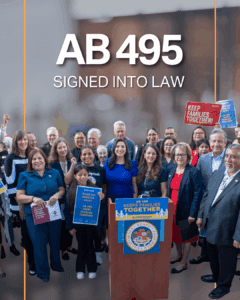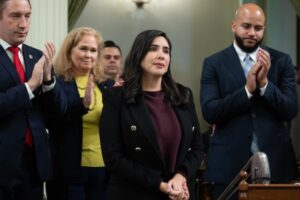This summer, a historic change took place thanks to years of advocacy work led by the Alliance and a coalition of partners: Governor Brown signed a new state budget that corrects a longstanding inequality in the way relative foster parents are supported in meeting a child’s needs.
Studies demonstrate that children placed with relatives experience less trauma, greater stability, and stronger bonds with siblings. However, in the past, California determined financial support for foster families based on a complicated formula that put relative caregivers at a disadvantage. In many cases, relatives were receiving as little as one third of the financial support that would be available to a non-relative for the very same child. “The result has been a system that makes it difficult for those who are most likely to provide a safe, stable, permanent home to step up and care for children in foster care,” said Angie Schwartz, Policy Director of the Alliance for Children’s Rights.
Two years ago, Donitas Escamilla became a foster parent to her niece, Bella, who suffered prenatal exposure to methamphetamine. She struggled to take time off from work to take Bella to therapy sessions that could help her overcome developmental delays. Because Donitas was Bella’s aunt, she received only about $300 per month to support Bella’s care. Had she been a non-relative foster parent, she would have received as much as $1100 per month. The new state budget means that foster parents like Donitas will finally be treated just like any other foster parent. “This represents the very first time in California’s history that we will be treating relatives and non-relative foster parents equally,” says Angie. The new system ties financial support to the needs of the child, rather than the type of placement, ensuring that all children in foster care have equal access to the services they need. The policy is part of the state’s Continuum of Care Reform effort, aimed at moving children out of group homes and into families. Recruiting and supporting relative foster care providers, who account for more than 50% of foster care providers in Los Angeles, is critical to the success of CCR.
The Walter S Johnson Foundation funded the campaign that lead to this historic change. “Providing support for grandparents and other relative caregivers is good public policy,” says Yali Lincroft, Program Officer at the Walter S Johnson Foundation. “These kinship caregivers, who persist through a multitude of legal, social, and family challenges, help vulnerable children survive trauma, abuse, and neglect – just as non-relative foster parents do.” Much remains to be done to deliver on the promise to move more children into family homes, and we are deeply grateful to our supporters of this work.




